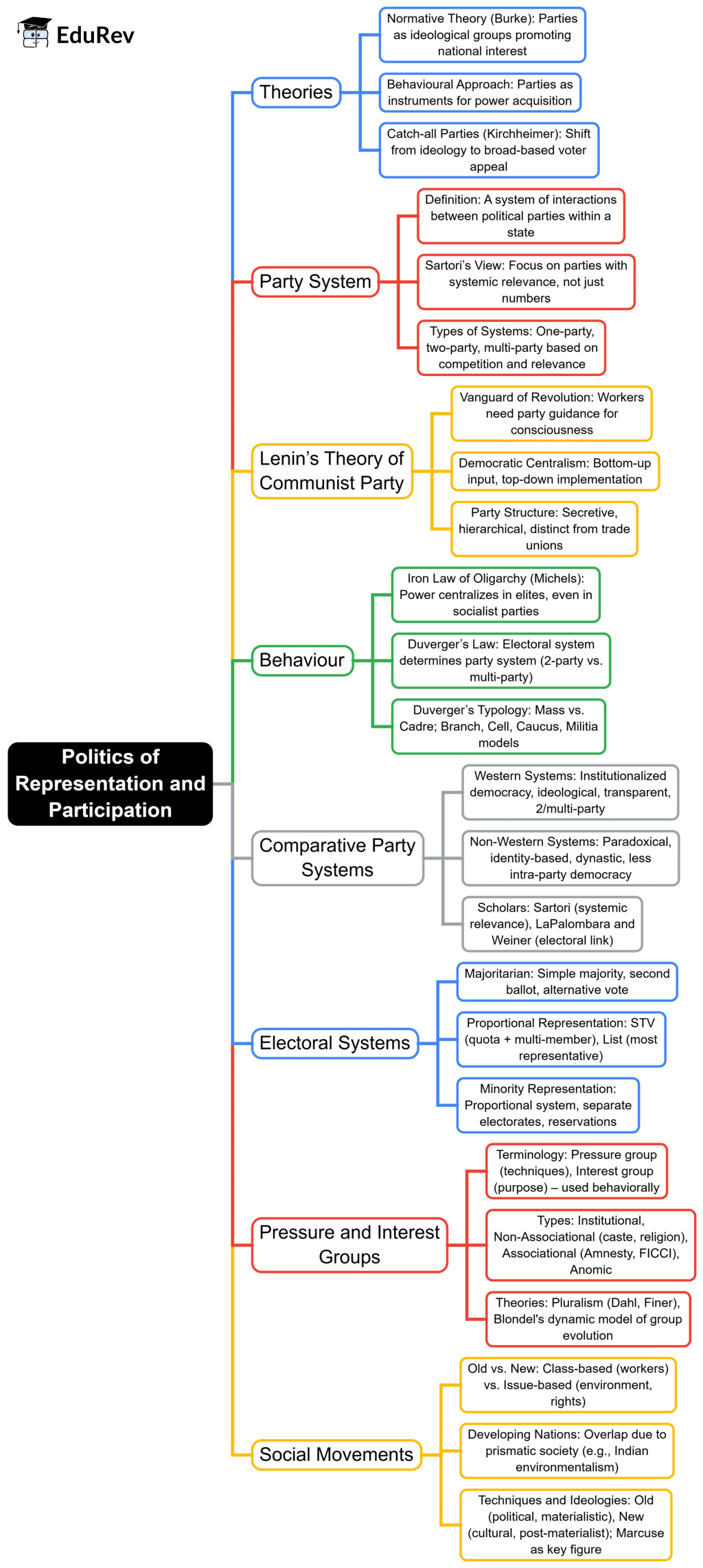UPSC Exam > UPSC Notes > PSIR Optional for UPSC > Mind Map: Politics of Representation and Participation
Mind Map: Politics of Representation and Participation | PSIR Optional for UPSC PDF Download

The document Mind Map: Politics of Representation and Participation | PSIR Optional for UPSC is a part of the UPSC Course PSIR Optional for UPSC.
All you need of UPSC at this link: UPSC
|
173 videos|572 docs|148 tests
|
FAQs on Mind Map: Politics of Representation and Participation - PSIR Optional for UPSC
| 1. What is the significance of representation in politics? |  |
Ans.Representation in politics is crucial as it ensures that diverse voices and perspectives are heard in decision-making processes. It allows different groups, including minorities and marginalized communities, to have a say in governance, thereby promoting inclusivity and equity in political systems.
| 2. How does participation affect democracy? |  |
Ans.Participation is fundamental to democracy as it empowers citizens to engage with political processes, influence policies, and hold leaders accountable. High levels of participation enhance the legitimacy of democratic institutions and contribute to more responsive governance that reflects the will of the people.
| 3. What are the barriers to political participation? |  |
Ans.Barriers to political participation can include socioeconomic factors, lack of education, systemic discrimination, political apathy, and restrictive laws or regulations. These barriers can prevent individuals, especially from marginalized groups, from effectively engaging in the political process.
| 4. How can representation be improved in political systems? |  |
Ans.Improving representation can be achieved through electoral reforms such as proportional representation, implementing quotas for underrepresented groups, and enhancing voter education. Additionally, fostering inclusive political parties and encouraging civic engagement can help ensure that all voices are represented.
| 5. What role do social movements play in representation and participation? |  |
Ans.Social movements play a vital role in advocating for the rights of marginalized groups and pushing for systemic change. They raise awareness about issues, mobilize citizens, and demand greater representation and participation in political processes, thereby influencing public policy and promoting social justice.
Related Searches
















